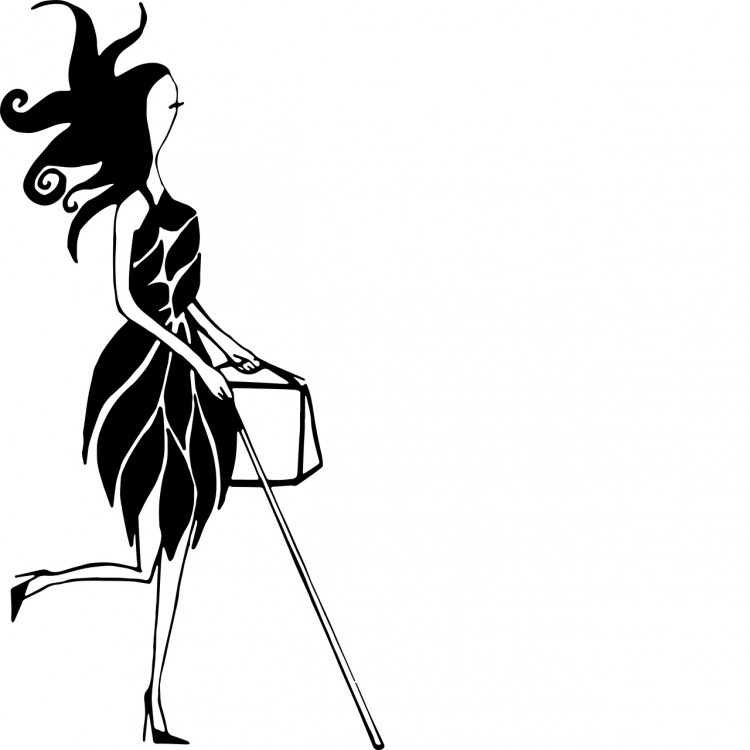How This 'Fabulously Chic' Icon Helps Me Feel Confident After Vision Loss
Meeting the world on its terms after losing much of my eyesight was difficult. Prejudice, inequality and inaccurate presumptions, though not new, were now based on my disability.
“As she steps forth to face the crowds
Some will stare, some will pass.
Captures attention as she goes
What do they really know?”
You’ve probably heard the phrase “you don’t know what you don’t know.” For example, I didn’t know I couldn’t see until I put on my first pair of eyeglasses. Prior to wearing eyeglasses, I functioned quite well because I wasn’t aware of what I couldn’t see, so as far as I was concerned there were no limitations to what I could achieve.
“She walks on by, her head held high
Opinions form in minds.
Some only see the stick she holds
What do they really know?”
Likewise, while I knew there was a significant disparity between the abled and disabled communities, I was stunned to find myself caught in the middle of two worlds. Many times I felt alienated for not being fully sighted, yet also not fully blind.
“I’m sick of people staring at your cane. It’s 2016, why do people still stare at people who use mobility devices?” my son asked me when we were on a recent outing.
“With cane in hand she proves she’s strong.
Breaking through opinions
She’s changing minds, she’s changing views
Shows them what they should know.”
I am grateful that I can’t see the gawking, however this is the reality of living with low vision in the sighted and non-sighted worlds. Sighted people can’t comprehend why a person who appears to see uses a white cane, and on the other end of the spectrum, blind people can take offense to people who aren’t totally blind being referred to as such.
Acceptance, the one thing most people yearn for, can seem especially elusive when living with a disability. However once we become confident enough to accept ourselves with our disability, we can begin to meet the world on our terms.

We are living in an era where people with disabilities are aggressively finding creative solutions to overcome the obstacles we face. Abigail, the poem by Jazmin Ruiz contained within this article was inspired by the stylish new white cane icon.
“Strength and beauty is what she holds.
Walking tall, head held high.
And there she goes achieving goals
That’s all they need to know.”
Abigail has sight loss, yet she is fabulously chic as she walks confidently with purpose, letting her white cane guide the way. The icon was designed with a two-fold mission in mind: to embolden women who are blind or have sight loss to embrace their individual greatness, and to eradicate the stigma around all kinds of visual impairments.
As a society, let’s begin a clean slate, operating from a standpoint of “we don’t know what we don’t know” to view people with an open mind. Let’s cease placing people with disabilities in a box of conformity based on what we think they can or cannot do. Once we are able to do this, we eliminate limitations.
Follow this journey on Bold Blind Beauty.
The Mighty is asking the following: Describe your experience of not quite fitting under one specific diagnosis or a label your community identifies with. Check out our Submit a Story page for more about our submission guidelines.
